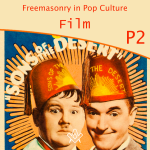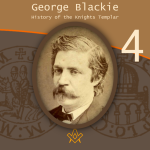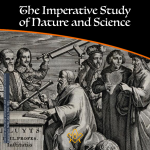Welcome to the September issue of The Square
![]()
Time is the most valuable thing a man can spend
– Theophrastus
Time seems to be flying past yet again, summer is mellowing and we are now heading into the autumn/fall.
Ancient Greek philosopher Theophrastus understood time as ‘an accident of motion that cannot be stopped or reversed’, he was believed to have said that ‘the waste of time is the most extravagant and costly of all expenses’.
Time is indeed a valuable commodity that should be spent wisely. So many of Freemasonry’s lessons reflect this premise – the extensive use of symbolism representing time – memento mori: the skull; the monument or broken column with time represented by an old man with a scythe; the hourglass, the grave.
Then there are the invaluable lessons of the 24-inch gauge, the working tool of the Entered Apprentice; then the Lessons of the Fellow Craft to wisely spend time immersing oneself in the seven liberal arts – ‘the hidden mysteries of science and nature’.
And finally, that sobering ritual of the Third Degree – whereby we must face our own mortality.
This month’s issue has a few time related themes:

Salt, Wine and Oil – Matthew A. Leilich brings up a very interesting time immemorial subject – the ancient wages of the mason. It is common knowledge that the ancient wages of a Fellowcraft Mason consisted of corn, wine, and oil.
Many however, object to this assertion. How can corn be associated with these ancient wages when—clearly—corn was first discovered in the New World? Discover how ‘corn’ may in fact be ‘salt’!

Masonic Miscellanies explores the origin and usage of the ‘monument’ or Broken Column’ used in the symbolic legend of the Third Degree.

8 Schools of Freemasonry takes us back in time but the invaluable lessons are still as relevant today as they were 100 years ago. We wind up Roscoe Pound’s ‘Lectures on the Philosophy of Freemasonry’ with his view on ‘A Twentieth-Century Masonic Philosophy: The Relation of Masonry to Civilisation.’

Property and Plunder – A story of the ‘Ruffians’ – those individuals whose paths cross ours, who feel entitled to seize and consume the property of others that they have not earned. A lesson to build character to be a better citizen of the world.

Freemasonry in Pop Culture Part 2 encourages us to take some well-earned time to check out a handful of films with references to Freemasonry and similar fraternal societies. From the sublime to the ridiculous, we’ll keep you entertained!

17th century and the Holy Royal Arch takes us time-travelling to discover how the early 17th century symbolism might have influenced the ritual we practice today.
Our regular contributors:

Kenneth Jack gives us the final part in the serialisation of George Blackie’s ‘History of the Knights Templar and the Sublime Teachings of the Order’ transcribed by his good self.

Gerald Reilly reminds us of how time is well spent during Freemasonry’s Second Degree, the candidate is advised that there is now permitted, something like, the extension of their research into the hidden mysteries of nature and science. in ‘The Imperative Study of Nature and Science’ is something that each and every Freemason should pursue with awe and passion.

Craig Weighman gives us more ‘extracts of wisdom’ from his book ‘A Journey in Stone’, this time to explore how Freemasonry has a particular building in mind to act as the perfect symbol for the wider purpose of Freemasonry. That building is King Solomon’s Temple.
As always, we also have the usual features of old books, new books, reviews of books, and a whole host of Masonic knowledge to keep you busy with your ‘daily advancement’.
We hope you enjoy this month’s issue. If you do – or if you don’t – drop me a line at editor@thesquaremagazine.com
Until next time, stay safe and well.

Article by: Philippa Lee. Editor

Philippa Lee (writes as Philippa Faulks) is the author of eight books, an editor and researcher.
Philippa was initiated into the Honourable Fraternity of Ancient Freemasons (HFAF) in 2014.
Her specialism is ancient Egypt, Freemasonry, comparative religions and social history. She has several books in progress on the subject of ancient and modern Egypt. Selection of Books Online at Amazon

